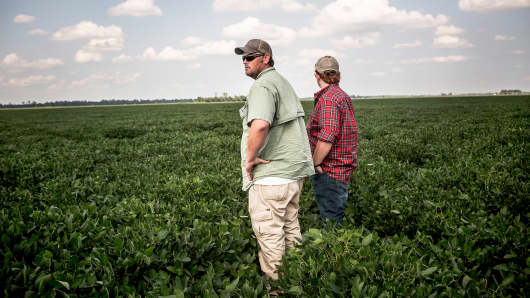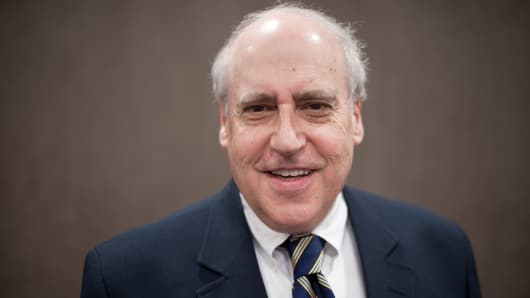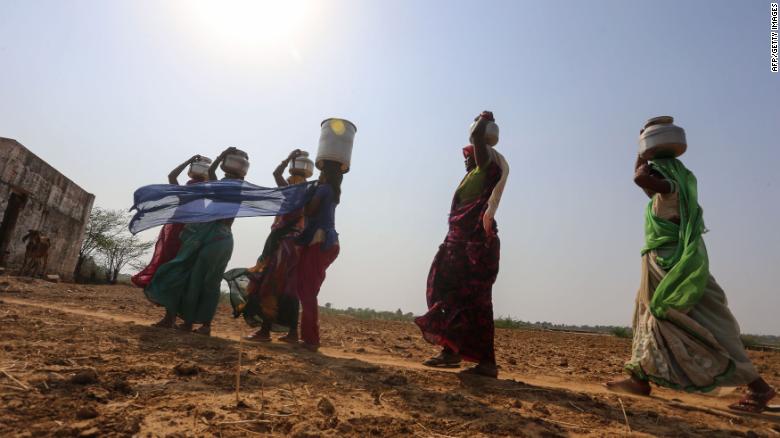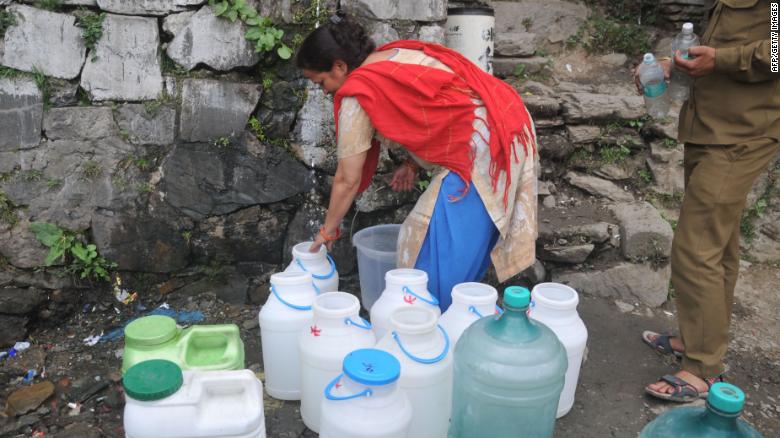Shep Smith on Trump's North Korea scam
Shep Smith breaks down the useless North Korea deal.
Posted by act.tv on Wednesday, June 13, 2018
Category: Education
Republican party is now the Trump party? “RIP GOP,
From Veterans Against the GOP. June 14, 2018
HLN
Is the Republican party now the Trump party? “RIP GOP,” S.E. Cupp mourns. “We used to stand for something. Now, just one thing.”
Is the Republican party now the Trump party? "RIP GOP," S.E. Cupp mourns. "We used to stand for something. Now, just one thing."
Posted by HLN on Thursday, June 14, 2018
The United States already spends more on the military than the next 10 countries combined.
June 14, 2018
The United States already spends more on the military than the next 10 countries combined. Our latest video explains why it's time to rein in Pentagon spending and the endless war machine, and demand investment in America. Please watch and help spread the word.
Posted by Robert Reich on Thursday, June 14, 2018
Two people who lie about everything signed a deal that’s specific about nothing.
Bill Maher on trump and kim jong un
June 15, 2018
Two people who lie about everything signed a deal that’s specific about nothing. I would say it was a feckless stunt.
Two people who lie about everything signed a deal that’s specific about nothing. I would say it was a feckless stunt.
Posted by Bill Maher on Friday, June 15, 2018
The model minority myth is responsible for huge misconceptions about being Asian in America.
June 2, 2018
The model minority myth is responsible for huge misconceptions about being Asian in America.
The model minority myth is responsible for huge misconceptions about being Asian in America.
Posted by Well-Rounded Life on Saturday, June 2, 2018
Depression-era program could help farmers in trade war
CNBC – Politics
Depression-era program could help farmers in trade war but still won’t make them ‘whole,’ says former USDA secretary
A Depression-era program could help farmers in the trade war with China, according to Dan Glickman, who served as agriculture secretary in the Clinton administration.
Glickman said other options also could be used within the agriculture agency but still won’t make farmers “whole.”
On Friday, China announced tariffs on $34 billion worth of American products, including soybeans, corn, wheat, beef, dairy products and sorghum.
Jeff Daniels June 15, 2018
 Getty Images. Soybean farmers in Mississippi County, Arkansas.
Getty Images. Soybean farmers in Mississippi County, Arkansas.
Although President Donald Trump has offered to make it up to farmers in a trade war, there’s no way to fully cushion all the potential losses that producers could suffer if there’s a significant reduction in soybeans and other exports, according to a former agriculture secretary.
On Friday, China announced a 25 percent tariff on $34 billion worth of American products, including soybeans, corn, wheat, beef, dairy products and sorghum. It followed the White House earlier in the day announcing plans to impose tariffs on more than 800 Chinese imports worth approximately $34 billion.
Earlier this year, Trump spoke about escalating trade tensions with China and said his administration essentially had the backs of farmers and would “make it up to them” and that in the end they “will be better off than they ever were.”
Many of the farm products targeted by the Chinese are grown in states where Trump received strong support during the 2016 presidential election. The latest tariffs announced by Beijing are set to take effect July 6.
 Former Agriculture Secretary Dan Glickman. Bill Clark | Roll Call | Getty Images
Former Agriculture Secretary Dan Glickman. Bill Clark | Roll Call | Getty Images
“This is very worrisome for American agriculture generally,” said Dan Glickman, who served during the Clinton administration as agriculture secretary. “The business model of agriculture is an export business model, particularly for the program crops such as wheat, corn, cotton, rice and especially soybeans.”
Glickman also said there could be fallout for GOP lawmakers from the Trump administration’s actions on trade. He said farmers and rural communities are likely to feel the pain if there is a significant decline in agricultural exports.
Even with trade tensions threatening American agricultural exports, some farmers remain steadfast in their support for Trump.
“President Trump and the administration have the best interests of America in mind,” said Joe Steinkamp, a soybean, corn and wheat grower near Evansville, Indiana. “They’re trying to do their best and say they’re going to take care of farmers — and we appreciate that.”
According to Glickman, there are several statutes available to the U.S. Department of Agriculture that could be used to help farmers, including programs through the Commodity Credit Corp. The CCC, a federal agency set up during the Great Depression, could potentially buy surplus farm products and support growers.
“This [CCC] is the part of the USDA that has almost unlimited amount of funds to sometimes make up the difference in farm prices,” said Glickman. “Sometimes they can buy commodities for school meal programs or for other hunger programs.”
Glickman, who now is executive director of the Aspen Institute’s Congressional Program, said other options available include purchasing programs tied to food humanitarian relief for famines and natural disasters that also are part of USDA.
Regardless, the former U.S. congressman and Clinton administration official said it’s “doubtful that farmers can be made ‘whole’ for all economic losses resulting from a trade war impacting American ag exports. It leaves farmers in an unstable, vulnerable position.”
Glickman said the trade war with China and other countries “involves great risk because, from a macro perspective, about 40 percent of American agricultural products are for export.”
Overall, U.S. agricultural exports to China represent almost $20 billion annually for American farmers.
The U.S. exports about $14 billion worth of soybeans to China, according to the USDA. China buys roughly half of the U.S. soybean exports, and roughly one in three rows of soybeans grown on the nation’s farms goes to the world’s second-largest economy, according to the American Soybean Association.
China also is the world’s largest cotton consumer and ranks as the second-largest buyer of American cotton, with one out of every five bales headed there.
The latest round of tariffs by Beijing follows retaliatory action taken in April by the Chinese against other agricultural products. Effective April 2, China imposed new tariffs of up to 25 percent on U.S. pork, nuts, wine and fresh fruit. The move was in response to the White House earlier announcing a 25 percent duty on steel imports and 10 percent on aluminum imports.
At the same time, Mexico this month announced retaliatory tariffs of 20 percent on U.S. pork exports in response to the Trump administration’s duties on imported steel and aluminum products. They also targeted apples and potatoes with 20 percent duties as well as tariffs of 20 to 25 percent on some dairy products and bourbon.
Earlier this year, Trump instructed U.S. Agriculture Secretary Sonny Perdue “to use his broad authority to implement a plan to protect our farmers and agricultural interests,” according to a statement issued in April. But little in the way of details have been offered of any specific plans.
“It’s not probably very smart in these kind of things to lay all your cards on the table about what you’re going to do,” Perdue told reporters in April.
Still, Glickman said he has “a lot of confidence in the current agriculture secretary, Perdue, that he’s going to use all of his authorities available to him. But there’s only so much he can do.”
Glickman said there’s also uncertainty out there for farmers when considering other tariffs U.S. trading partners can impose on U.S. agricultural products. “We’re most vulnerable in retaliation on agriculture, because that’s the one area where exports are more critically important than almost any segment of the American economy,” he said.
Enraged farmers and lawmakers confront Pruitt during Heartland tour
ThinkProgress
Enraged farmers and lawmakers confront Pruitt during Heartland tour
Rural workers slammed White House favoritism of fossil fuels.
E.A. Crunden June 15, 2018
 Ethanol Plant in Rosholt, South Dakota. Credit: Myloupe/UIG via Getty Images
Ethanol Plant in Rosholt, South Dakota. Credit: Myloupe/UIG via Getty Images
Environmental Protection Agency (EPA) head Scott Pruitt is facing a torrent of accusations and anger as he tours through the U.S. heartland. Farmers and Midwestern politicians are accusing the official of prioritizing fossil fuel industries over the interests of the region, which has served as a reliable base for President Trump.
Touring through states including Kansas, Nebraska, and South Dakota this week, Pruitt came under fire repeatedly by constituents for reasons unrelated to his lengthy list of scandals. The subject of at least a dozen federal investigations relating to financial and ethics decisions, Pruitt encountered questions of a very different variety in the Midwest.
“To be honest, Administrator Pruitt, we’re mad as hell,” Kansas farmer Dennis McNich told Pruitt earlier this week. “Today, the American farmer is struggling to make ends meet and our industry is on the cusp of financial ruin in many areas of the country.”
Oil, gas, and coal have seen a favorable reception under the Trump administration, which has rolled back Obama-era initiatives and regulations in favor of fossil fuels. While those moves are in line with the president’s conservative base, farming states argue they’ve come at a cost.
At the center of that contention is ethanol, a crucial source of income for corn-producing states. Under the Renewable Fuel Standard (RFS), oil refiners are required to blend ethanol and biodiesel with petroleum, a requirement the corn industry welcomes and the oil industry has repeatedly lobbied against.
China hits U.S. farmers where it hurts after White House trade threats

Small refineries are sometimes granted waivers in order to avoid outsized costs under the RFS. But under Pruitt, the EPA has granted a number of controversial waivers, including one to Oklahoma billionaire Carl Icahn. That trend sparked a request from 13 Midwestern senators, including Chuck Grassley (R-IA) and Amy Klobuchar (D-MN), demanding that the EPA cease issuing such waivers.
That hasn’t happened and farmers are angry. “We ain’t going to be played for a sucker. And that’s what they’re trying to do,” Grassley told the New York Times this week.
His comments came after fellow Iowa Sen. Joni Ernst (R) called Pruitt “about as swampy as you get.” A number of other rural Republican lawmakers have similarly slammed Pruitt over seeming favoritism towards oil and gas over corn and agriculture.
“EPA Administrator Scott Pruitt is embarrassing President Trump,” reads one ad currently running in the region and backed by the conservative American Future Fund, which is based in Iowa and receives funding from at least one wealthy ethanol producer.
Iowa is not among the states on Pruitt’s agenda this week, but the administrator received an earful in the areas he did visit.
“My personal opinion is farmers are demanding accountability and I think that Mr. Pruitt probably is a dead man walking,” Dane Hicks, the GOP chairman for Anderson County, Kansas, told Politico. “I can’t imagine he rebounds from this in any way to salvage his position. I would expect his resignation soon.”
Kansas Corn Growers Association President Ken McCauley had similarly harsh words. McCauley blasted Pruitt for coming to Kansas to “take a few photos with smiling farmers and tell the President that corn farmers are okay with his actions” rather than addressing the region’s needs.
“When you look at what EPA is doing, they are most definitely picking winners and losers and right now, ethanol is the loser,” McCauley said. He went on to add that the “EPA’s attacks on ethanol don’t just hurt plants like EKAE, they hurt farmers, rural communities, and American consumers who benefit from ethanol with lower prices and cleaner air.”
As trade war rhetoric grows, Appalachia and the Heartland fear backlash

Displeasure with Pruitt runs deep, but farmers aren’t completely satisfied with Trump either. Ongoing trade feuding between the Trump administration and a number of key trading partners, including Mexico, Canada, China, and the European Union, has sparked retaliatory tariffs predominately targeting the Midwest and the South. One particular source of contention is soybeans, a major export for the region. Responding to aggressive trade threats from Trump, China hit out at U.S. soybeans, threatening a 25 percent tariff and infuriating U.S. farmers in the process.
Trump has also failed to remove gasoline restrictions that limit ethanol amounts, despite promising farmers he would do so. Pruitt has said he supports lifting that restriction, but farmers have expressed frustration and skepticism.
“Agriculture is not very happy with Mr. Pruitt at this point,” said David Fremark, whose family grows and sells products including corn and soybeans in South Dakota.
“He’s done some good things, but this far and away overshadows everything he’s done,” Fremark said.
Pruitt’s visit to Nebraska on Thursday marked his final stop during the tour. It was not immediately clear to what extent the resounding criticism the administrator faced throughout the week would factor into future policy decisions or whether it would hinder his standing with the president.
Trump: Kim’s people sit up when he speaks, ‘I want my people to do the same’
The Hill
Trump: Kim’s people sit up when he speaks, ‘I want my people to do the same’
By Max Greenwood June 15, 2018
Trump: Kim’s people sit up when he speaks, ‘I want my people to do the same’
President Trump said on Friday that he wants “his people” to listen to him like North Korean leader Kim Jong Un’s people listen to him.
“He’s the head of a country. And I mean, he is the strong head,” Trump said of Kim in a tongue-in-cheek manner as he spoke to Steve Doocy of “Fox & Friends” outside the White House.
“Don’t let anyone think anything different. He speaks and his people sit up at attention. I want my people to do the same,” Trump said.
It wasn’t clear what Trump meant by “his people” and “my people,” phrasings that could be interpreted to mean all North Koreans and Americans but that could also mean those people reporting directly to the two leaders.
Doocy did not ask a direct follow-up question to clarify.
Speaking to reporters on the White House lawn after the Fox interview, Trump was pressed on what he meant when he said that he wanted his “people” to listen to him like the North Koreans listen to Kim.
“I was kidding,” he said. “You don’t understand sarcasm.”
A White House spokesperson did not immediately respond to The Hill’s request for clarification.
The president praised Kim during the Fox interview, a continuation of compliments he has offered the dictator since their summit in Singapore earlier this week.
He said that he had “hit it off” with Kim.
“We get along very well, we had good chemistry,” Trump said.
Trump’s comments came three days after his meeting with Kim — the first between a sitting U.S. president and North Korean leader — in which the two signed a brief document committing the Korean Peninsula to denuclearization in exchange for unspecified security guarantees from the U.S.
Trump has also come under fire from some lawmakers for his friendly comments towards Kim, whose government has a notorious human rights record and a history of cruel treatment of prisoners, including Americans.
India facing its worst water shortage in history, report says
CNN
India facing its worst water shortage in history, report says
By Swati Gupta June 15, 2018
 Indian women fetch water from a pit in the bed of Lokpal Sagar Lake in Madhya Pradesh.
Indian women fetch water from a pit in the bed of Lokpal Sagar Lake in Madhya Pradesh.
Story Highlights
Six hundred million people are dealing with high to extreme water shortage
“We have 4% of the global water and 16% of the global population,” an expert notes
(CNN)India is facing its worst water shortage in history. Six hundred million people are dealing with high to extreme water shortage, according to a report by Niti Aayog, a policy think tank for the Indian government.
The report states that an average of 200,000 Indian lives are lost every year due to inadequate supply or contamination of water.
Sustainable water development has seen slow progress in India in recent years. Though 80% of the country’s states have water conservation legislation, bad data management and nonexistent pricing of water have kept the country from making significant change, the report states.
Poor irrigation techniques and severe contamination of groundwater have brought India to the edge of this crisis.
India is predominantly an agricultural country, with 80% of its water used for irrigation, the report says. The irrigation practices followed by farmers are inefficient at best.
Cape Town rejoices as rain falls on drought-stricken city

“Policies like several states giving free electricity to farmers or giving financial support for groundwater extraction — borewells and tube wells — results in uncontrolled exploitation and wastage of resource,” said Suresh Rohilla, director of urban water management at the Centre for Science and Environment.
Drip irrigation, which is a method to provide an exact amount of water directly to the root of the plant, has seen few customers. The implementation is costly for the average farmer, and state government provides limited support, said Samrat Basak, director for urban water at the World Resources Institute.
“Primarily, water is not valued in India. It is very cheap in India. People think it is free,” Basak added.
According to the report, three-quarters of the Indian population is affected by contaminated water, and 20% of the country’s disease is thought to directly correlate.
India does not have an adequate number of sewage treatment plants, so untreated urban wastewater is often added to water flowing downstream — the same contaminated water used in rural areas for drinking, according to the report.
Twenty-one major Indian cities are estimated to run out of groundwater by 2020 — just two years away.
 Indian residents wait to collect drinking water in Shimla as the city faces water shortage.
Indian residents wait to collect drinking water in Shimla as the city faces water shortage.
One hundred million people, including those in the large cities of Delhi, Bangalore and Hyderabad, will be living in zero groundwater cities, according to the report.
“People think that if they own the land, they own the water. India as a country extracts the highest amount of groundwater in the world,” Basak said.
As India develops and grows to support its 1.3 billion people, the country is on the brink of an inescapable crisis.
Some states have shown a marked improvement in water quality standards during the past year.
“There have been time to time policies and programs launched by central and state governments,” Rohilla said. However, the government has not shown that it is serious enough to translate its goals into reality,” he added.
Authorities have launched better water management practices and legislation for the protection and restoration of water bodies, the report says.
The initiative to release this report is a step in the right direction, Basak said.
State governments have control over water-related policies, and the lack of legislation for groundwater extraction and the inability to price water for every home due to political constraints has led to a paralysis in the formation of a sustainable framework.
Cities have seen a return to the use of water tankers due to a lack of groundwater and in turn no water being supplied to the taps in people’s homes.
At a single tap at the back of the tanker, hundreds of people line up with cans and containers to get a few liters every day.
“We have 4% of the global water and 16% of the global population. The minute you bring this statistic into the equation, there is a non-rocket-science understanding of how this has happened,” Basak said.
New Delhi orders construction halt as pollution levels soar
Associated Press
New Delhi orders construction halt as pollution levels soar
AP June 14, 2018

NEW DELHI – New Delhi officials have ordered a two-day halt to construction in an attempt to reduce choking pollution that has cloaked the city in smog and dust.
The government’s Central Pollution Control Board rated the city’s air quality Friday as “severe” — the worst possible category — for the fourth day in a row.
New Delhi’s level of PM2.5, tiny particulate matter that can dangerously clog lungs, exceeded 170 Friday morning, more than six times higher than the World Health Organization considers safe.
The New Delhi government has made scattered attempts in recent years to try to control worsening air pollution, including stricter emission norms for cars and a tax on diesel-fueled trucks entering the city. But the pollution has only gotten worse.
